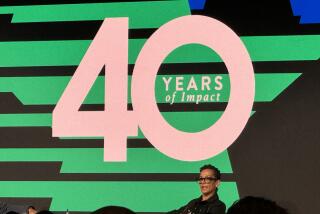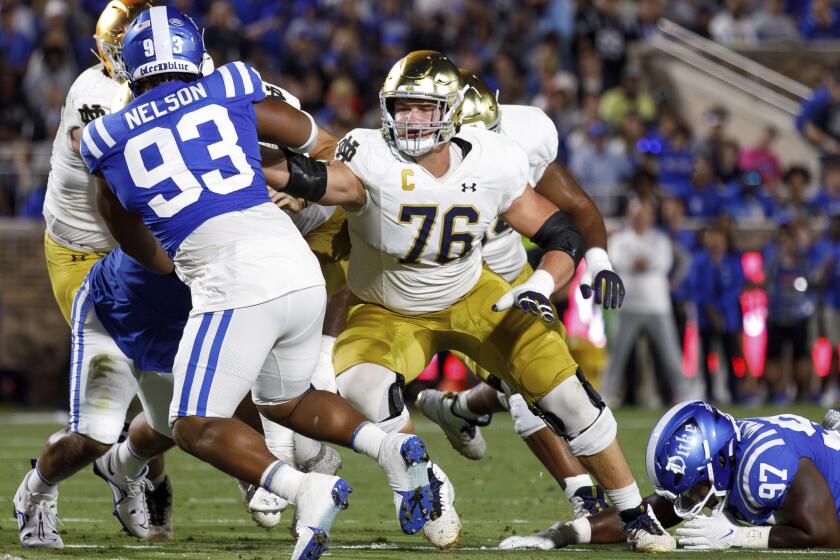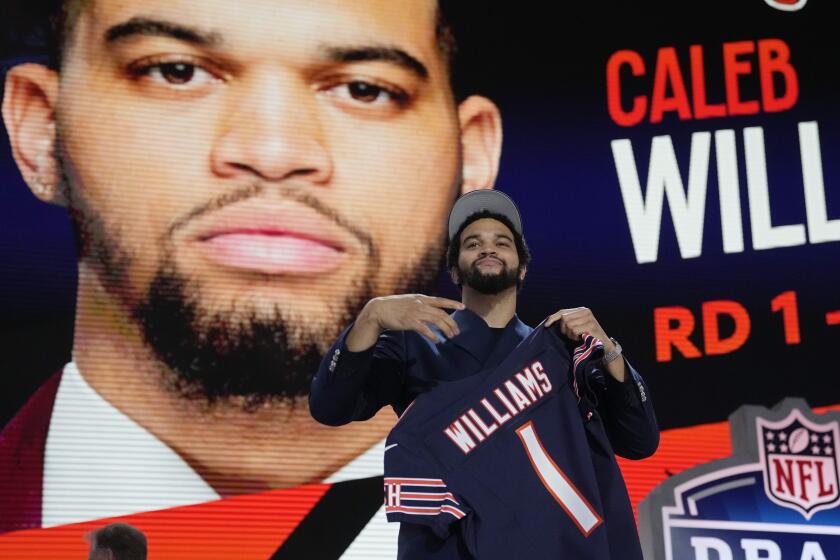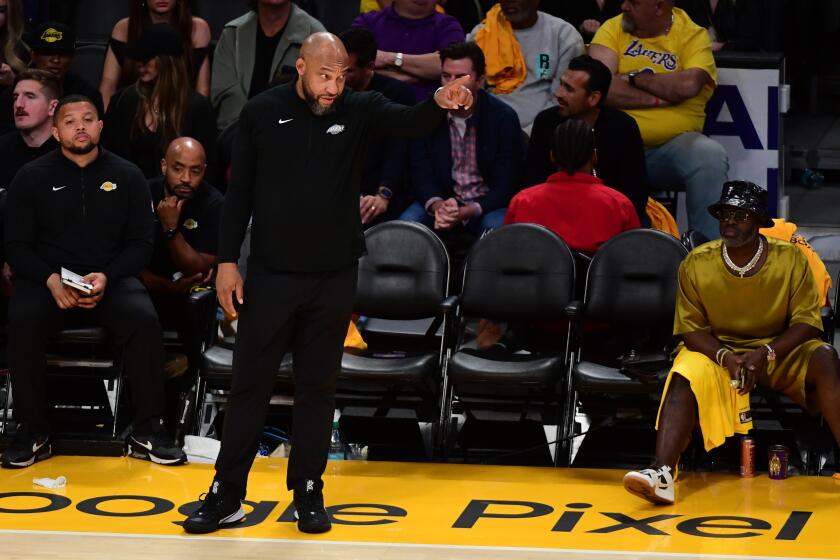Los Angeles will make a pitch to host 2024 Olympic Games
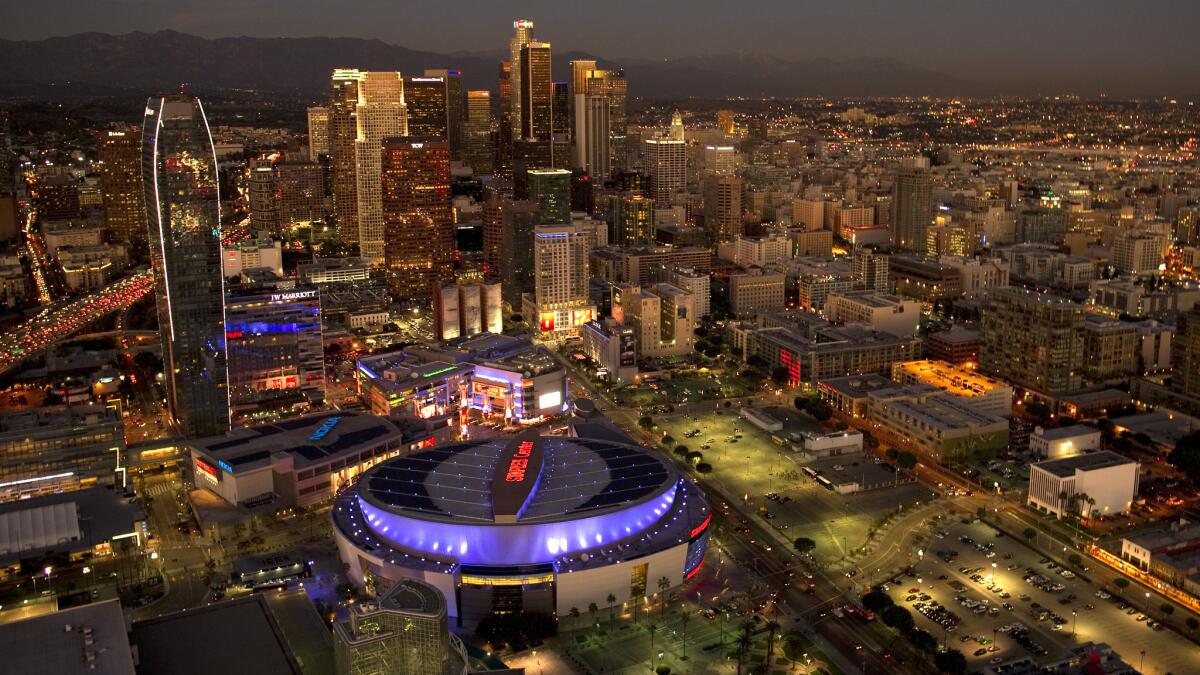
The clock starts ticking as soon as Mayor Eric Garcetti and a handpicked group of advisors step into a corporate conference room on Tuesday morning in this San Francisco suburb.
After months of holding meetings, building alliances and drawing plans, they will have 60 minutes to convince U.S. Olympic Committee officials that Los Angeles is the right place to hold the 2024 Summer Games.
There is little doubt that, as a two-time host — 1932 and 1984 — the city can handle 10,500 athletes competing in a dozen or more venues.
“On the surface, they have a lot going for them,” said Robert Livingstone, who writes about the bid process for gamesbids.com. “The only thing not going for them is: ‘Why LA again?’”
With the USOC submitting only one American bid — and with Boston, San Francisco and Washington also in the running — Garcetti’s contingent must overcome a sense of been-there, done-that.
The Los Angeles group, which includes sports executive Casey Wasserman, will emphasize all that has changed since the Olympics last visited in 1984, including the addition of Staples Center and a light-rail system.
In a series of emails, Garcetti stopped short of offering details, writing instead about a “bold vision for a sustainable, affordable and inspiring Games that will directly benefit our community.”
A bid book filled with color illustrations that circulated among local Olympic officials earlier this year portrayed Los Angeles as an entertainment mecca that has grown dramatically over the past three decades.
With the USOC keeping the domestic bid process informal — and quiet — it is not clear how much Los Angeles’ proposal has changed, but initial plans proposed staging events at well-known locations:
• Walt Disney Concert Hall could host martial arts.
• Fencers could compete inside the Nokia Theatre.
• Santa Monica shoreline could be transformed into a beach volleyball venue.
• The Queen Mary and Long Beach could serve as a centerpiece for sailing events.
• Staples Center would host multiple events with a smaller stadium constructed for swimming.
• The Coliseum would get a facelift while retaining its historic facade.
There had been some thought about using Hollywood Bowl, but that idea seems to have lost momentum.
All of this makes fiscal sense given the reforms the International Olympic Committee recently enacted in order to reduce the cost of putting on the Games. After Russia spent approximately $51 billion in Sochi on the 2014 Winter Games, several cities pulled out of bidding for 2022.
Los Angeles officials say they have support from the entertainment industry and business leaders. With major venues already in place, the city could limit most of its spending to operating costs. Still, the competition on Tuesday figures to be intense.
City by the Bay
When USOC officials recently visited San Francisco, the bid committee put them in a helicopter for a scenic tour.
“We had spectacular views of the Golden Gate Bridge and our iconic waterfront,” spokesman Nathan Ballard said. “San Francisco would provide a made-for-TV Olympic experience.”
The home of cable cars, Coit Tower and Alcatraz could follow a pattern set by the 2012 London Games, where Buckingham Palace and Big Ben provided backdrops for competition.
USOC Chairman Larry Probst spoke of San Francisco’s “magical appeal” in a recent interview with the Chicago Tribune. That mystique should resonate with IOC members worldwide.
“I’ve always loved San Francisco as a possible site,” Livingstone said. “But there are some issues.”
Events might be spread throughout the region, involving numerous municipalities. A campaign for the 2016 Olympics collapsed when the San Francisco 49ers fought the city over a proposed stadium near their former home, Candlestick Park.
Ballard insists things have changed.
“This Olympic bid has been warmly greeted by the body politic,” he said. “And we have unanimous support from San Francisco and Silicon Valley business leaders.”
Crowds and security
With a history of presidential inaugurations and massive demonstrations around the Lincoln Memorial Reflecting Pool, Washington officials know about crowds and security.
The bid committee is pushing the image of a diverse community that would rally around a common cause. Penny Lee, a spokeswoman, said: “We know a Washington that a lot of people don’t know.”
IOC members could be a tough sell. American policy emanating from Washington has been unpopular in many parts of the world. In 1999, Congress summoned then-IOC President Juan Antonio Samaranch for a less-than-pleasant discussion about the Salt Lake City bidding scandal.
“Any city that has hosted the Olympics in the past probably has had issues with the IOC,” Lee said. “We have not heard of those issues [working against] Washington.”
Grass-roots opposition
Like all of Los Angeles’ competitors, Boston has never hosted the Olympic Games.
This bid centers on creating a network of venues within walking distance of each other, transforming the city into an Olympic Park.
The city would need to construct an Olympic stadium, athletes village, aquatics center and velodrome, according to a state-appointed commission. The report predicted the Games could be economically feasible despite the cost of new construction. All four bid cities project it would take $4 billion-$5 billion to host the Games, not including infrastructure improvements.
Still, there is grass-roots opposition in Boston.
“The main concern is that the Olympics haven’t had good outcomes for host cities,” said Chris Dempsey, co-chairman of a group called No Boston Olympics. “They haven’t left cities better off.”
Boston 2024 officials did not make themselves available for interviews.
Long process
The last two times the U.S. bid for the Summer Games — New York and Chicago — the cities were eliminated early in IOC voting. So there is a chance the USOC, after hearing presentations on Tuesday, will decide not to try for 2024.
But relations with the IOC have warmed since then, and Probst has said he is leaning toward a bid. At a recent IOC session in Monaco, Livingstone noticed him making the rounds among the membership.
“Enough time has passed,” Livingstone said. “It definitely needs to be tested.”
Los Angeles will address the committee at 8 a.m. Garcetti and Wasserman will be joined by experienced social advocate Kafi Blumenfield and Bill Hanway, a design expert involved with previous Olympics.
Washington presents second and might bring Olympic swimmer Katie Ledecky. San Francisco figures to be led by Giants owner Larry Baer. Boston will go last.
USOC officials have scheduled a news conference in the afternoon and could confirm that they will make a bid, but the winning city may not be known until later this month or early next year. The IOC will not make its decision until 2017.
Still, Tuesday’s presentations could be decisive, offering a chance for candidates to state their case. For Los Angeles representatives, that means portraying the city as vibrant and evolving.
“The Olympics have been held in London three times,” said Jeff Millman, a spokesman for the mayor. “So it can be done in Los Angeles, too.”
Twitter: @LATimesWharton
More to Read
Get our high school sports newsletter
Prep Rally is devoted to the SoCal high school sports experience, bringing you scores, stories and a behind-the-scenes look at what makes prep sports so popular.
You may occasionally receive promotional content from the Los Angeles Times.

